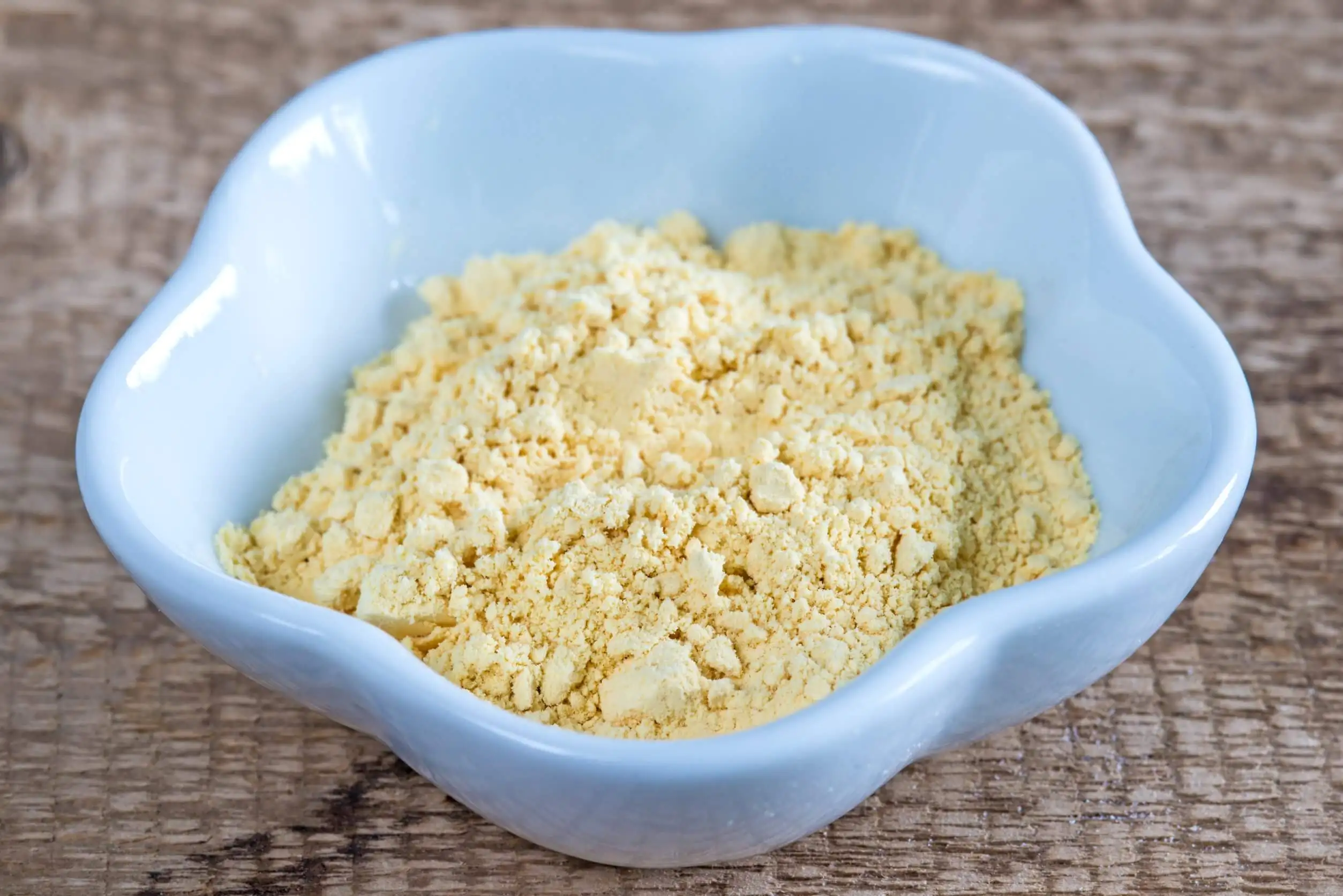Lupin Flour: A Great Gluten-Free Option


Written and verified by the nutritionist Saúl Sánchez Arias
Lupin flour is an ingredient that can be included in the diet on a regular basis and it has several health benefits. It’s a gluten-free food, so it can replace wheat flour in the case of celiacs or people who are sensitive to the protein. In addition, it has several essential nutrients, and your body will appreciate it!
Before starting, we’d like to emphasize that legumes should play an important part in the weekly diet. It’s important to include them at least 2 or 3 times, as they’re a source of fiber, proteins and essential minerals. Also, they contain complex carbohydrates, elements that work as the main energetic substrate to carry out high-intensity activities.
Where’s lupin flour obtained from?

As its own name indicates, lupin flour is obtained from the sweet lupin bean, which fall within the group of leguminous plants. They aren’t very frequently used in popular gastronomy, but they’re increasingly present in many people’s diets due to their versatility and the benefits they provide.
These legumes are native to regions of America and Asia. The plant can reach a couple of meters (6.6 feet) high and pods grow inside them, which are the seeds, the edible part. As a food, it’s important to emphasize the protein and fatty acid content of the omega-3 and omega-6 series. Of course, one of the main characteristics is that they don’t contain gluten.
We shouldn’t underestimate the presence of fiber in lupins either. The requirements of the main dietary guidelines are 25 grams (1 oz) per day. However, this is rarely met, which could lead to alterations in digestive function or intestinal transit.
Read about another type of flour here: Peanut Flour: A Source of Protein for Your Diet
Benefits of lupin flour

The inclusion of lupin flour in the context of a varied and balanced diet can create several positive health effects. It can act as a cardioprotective element, mainly due to the antioxidants it contains.
Antioxidant compounds neutralize the formation of free radicals and their subsequent accumulation in the body’s tissues. This mechanism has been associated with a lower risk of developing complex pathologies, according to a study published in the European Journal of Medicinal Chemistry.
Moreover, they can help control blood sugar levels due to their fiber content. It has been shown that this element is essential in order to prevent and manage diabetes.
This pathology is becoming more and more prevalent in the population due to the excessively high intake of simple sugars that has been promoted in recent years. It’s also related to other serious health problems.
Lupin flour will help you to control your appetite, which is crucial when you are using a low-calorie diet with the aim of weight loss. According to research published in the journal Nutrition Reviews, this substance slows down gastric emptying, which favors satiety for a longer period of time. This will help to stick to your diet and avoid a possible rebound effect.
Finally, this product can help to complete the daily protein requirements. Proteins are very important nutrients to prevent problems related to lean mass and to ensure a state of internal homeostasis. The highest quality proteins are those present in foods of animal origin, but this doesn’t mean that you shouldn’t eat plenty of vegetables to complement them.
You may also be interested in: Fiber-Packed Foods that Can Help You Lose Weight
Lupin flour is an excellent addition to your diet
As you have seen, lupin flour is a high-quality product that can be included in your diet on a regular basis with the aim of improving your overall health.
It has essential nutrients and can provide a significant dose of fiber. It’s essential to cover your daily fiber requirements in order to avoid constipation or intestinal dysbiosis, situations that may cause digestive problems.
Finally, we’d like to mention that legume flour in general usually produces less gas than when you consume legumes whole. This occurs because part of the fibers are broken, which decreases the subsequent fermentation.
Because of this, the digestion process will be easier and you won’t be as likely to experience discomfort. However, if you do suffer from dysbiosis, then legume flour may not be good for you. In this case, it’s best to consult a professional.
All cited sources were thoroughly reviewed by our team to ensure their quality, reliability, currency, and validity. The bibliography of this article was considered reliable and of academic or scientific accuracy.
- Neha K, Haider MR, Pathak A, Yar MS. Medicinal prospects of antioxidants: A review. Eur J Med Chem. 2019;178:687-704. doi:10.1016/j.ejmech.2019.06.010
- Reynolds AN, Akerman AP, Mann J. Dietary fibre and whole grains in diabetes management: Systematic review and meta-analyses. PLoS Med. 2020;17(3):e1003053. Published 2020 Mar 6. doi:10.1371/journal.pmed.1003053
- Rebello CJ, O’Neil CE, Greenway FL. Dietary fiber and satiety: the effects of oats on satiety. Nutr Rev. 2016;74(2):131-147. doi:10.1093/nutrit/nuv063
This text is provided for informational purposes only and does not replace consultation with a professional. If in doubt, consult your specialist.








